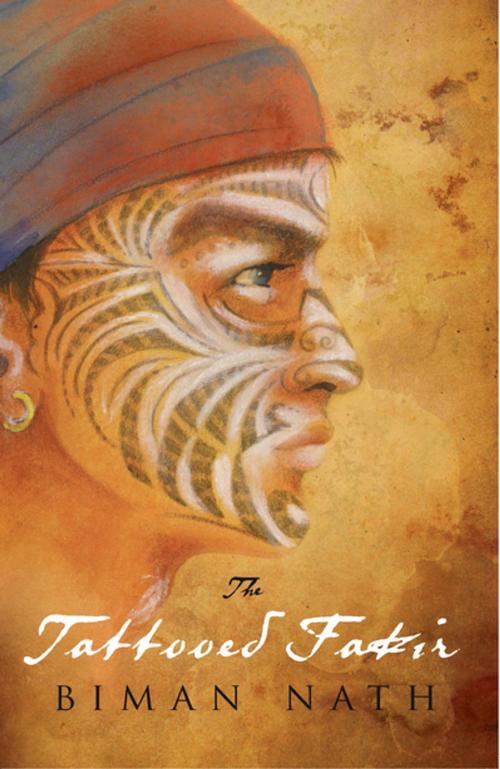| Author: | Biman Nath | ISBN: | 9781447242413 |
| Publisher: | Pan Macmillan | Publication: | February 27, 2014 |
| Imprint: | Pan Macmillan India | Language: | English |
| Author: | Biman Nath |
| ISBN: | 9781447242413 |
| Publisher: | Pan Macmillan |
| Publication: | February 27, 2014 |
| Imprint: | Pan Macmillan India |
| Language: | English |
A spare, elegant rendition of political clashes driven by personal agendas of rage and revenge, The Tattooed Fakir underlines a lesser known section of history with deep emotions. A novel about a lesser known section of eighteenth century Indian history armed Muslim fakirs waging guerilla warfare against British colonial rulers. Explores the interesting dilemma of the mixed-race child who is transformed into the fierce tattooed fakir. A young woman Roshanara is kidnapped by the village zamindar. The British sahib, owner of the indigo plantation, intervenes, but then takes her as his own mistress. She is not, however, any local woman she is a fakirs daughter. It is the end of the eighteenth century in northern Bengal. Roshanaras father, Cherag Ali and her husband, Asif go to Majnu Shahs band of fakirs to plead for help in getting her back. The fakirs are known for their heroic battles with the British, for their arms and horses. Asif feels nothing is left for him in the village and joins the fakirs, training in the use of weapons and ammunition, skirmishing with them up and down the country, but pining, always, for his Roshanara. Years later, in an oddly fated rescue mission he ends up, not with her, but with her son Roshan who evolves into a ferocious fakir soldier, tattooed and insecure about his identity.
A spare, elegant rendition of political clashes driven by personal agendas of rage and revenge, The Tattooed Fakir underlines a lesser known section of history with deep emotions. A novel about a lesser known section of eighteenth century Indian history armed Muslim fakirs waging guerilla warfare against British colonial rulers. Explores the interesting dilemma of the mixed-race child who is transformed into the fierce tattooed fakir. A young woman Roshanara is kidnapped by the village zamindar. The British sahib, owner of the indigo plantation, intervenes, but then takes her as his own mistress. She is not, however, any local woman she is a fakirs daughter. It is the end of the eighteenth century in northern Bengal. Roshanaras father, Cherag Ali and her husband, Asif go to Majnu Shahs band of fakirs to plead for help in getting her back. The fakirs are known for their heroic battles with the British, for their arms and horses. Asif feels nothing is left for him in the village and joins the fakirs, training in the use of weapons and ammunition, skirmishing with them up and down the country, but pining, always, for his Roshanara. Years later, in an oddly fated rescue mission he ends up, not with her, but with her son Roshan who evolves into a ferocious fakir soldier, tattooed and insecure about his identity.















